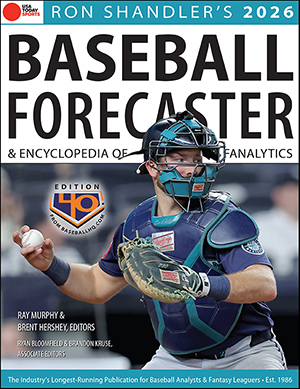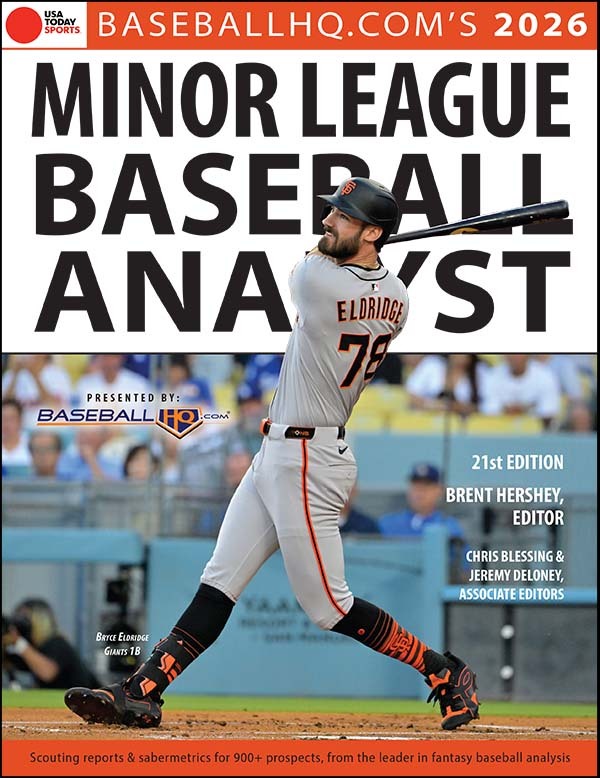
(*) MASTER NOTES: Noah's Arc, Part 2
Last week in Master Notes, I argued that Noah Syndergaard was in the right to refuse the MRI the Mets had asked him to take after a seeming arm injury. This week, we move on to the hue and cry in the media about whether Syndergaard was out of line in refusing to talk with reporters about his injury.
As I said last week, Syndergaard could argue he was not under a contractual requirement to take the MRI, but I know some pretty smart people (and a lot of not-so-smart people) who can make the case that he should have taken it, or that his motives were more petty and child-tantrumish than coolly reasoned.
I disagree, but I see the point, and I’m fine with that. That said, even if Syndergaard should have taken the MRI, he did not have any requirement—legal, moral, or ethical—to talk with the media about the MRI or anything else related to his health.
Hello? Willie? You There? Willie?
First of all, there’s no such agreement in the CBA or the UPC. Under the CBA, accredited baseball media are granted access to the clubhouse during specified periods “before and after games for interviews” and sometimes between games of a doubleheader. Nowhere does it specify that the player must subject himself to questions about his health or other aspects of his personal life.
This leads to a more general argument about whether athletes have some duty to talk to journalists. I don’t think so. And I used to be one. A journalist, I mean, not an athlete. Like you needed to be reminded.
When I was a daily newspaper columnist, one of my pals in the sports department got his nose out of joint on this topic. He was trying to get an interview with Willie Upshaw, a decent slugger who got some lower-ballot MVP votes in the early ’80s as a member of the Blue Jays. The Jays had traded Upshaw to Cleveland before the 1988 season. My pal’s boss, the assistant sports editor, told him to track down Upshaw for an interview on what is like to leave the rising Jays and be sent to the hinterland on Lake Erie.
I don’t know how he did it, but my pal got the number of the Cleveland locker-room phone. He is very resourceful—you wouldn’t believe the names in his tattered old Rolodex. It’s a skill that might hold him in good stead when they finally shut down the paper where he works. Mind you, knowing him, he’ll keep turning up in the newsroom even after they close the place. They’ll find a cobwebbed mummy with a phone stuck to its ear, when they demolish the place to make room for a parking lot or, even worse, a Super Wal-Mart.
Anyway, my pal had the number of the phone inside the locker room. So he waited until he was sure the Cleveland players would be in the room, then dialed. Someone picked up, and my pal asked for Upshaw by name.
“Hey, Willie—the phone’s for you,” the guy hollered. A few seconds later, a deep voice said hello.
My pal said, “Is this Willie Upshaw?”
“Yeah.”
“Hi, Willie!” my pal said. He introduced himself, and then said, “I’m a sports reporter for the Leader-Post newspaper in Regina, Saskatchewan. Do you have a few minutes for a quick interview?”
“Ah sure don’t,” Willie Upshaw said in his slow Texas drawl. Then he hung up.
I still laugh when I think of that.
“Ah sure don’t” became a catchphrase between my pal and me, they way “Yeah, suuuure” became a catchphrase in Ball Four.
But He OWES Us...
I digress. My pal was pretty mad that Upshaw had declined the interview. I wish he’d asked me if I agreed, because I could have said, “Ah sure don’t,” which would been both hilarious and accurate.
His point, which we still hear 28 years later, was that Upshaw and other pro athletes owe it to media because the media act as the middleman to the fans. Like the Jays’ organizational hopes had rested on the support of 800 baseball fans in Regina, Saskatchewan.
(Although I should point out that Saskatchewan is a baseball hotbed of sorts. It’s a place more suited to hockey or competitive hypothermia, but every small town has a pretty decent team, and they travel up and down the highway playing tournaments every weekend. I used to umpire those games, and they weren’t bad. Nine big-leaguers have come from there, including one-time Astros’ all-start OF Terry Puhl, a career .280 hitter.)
The argument goes that a pro athlete like Syndergaard benefits from media coverage of him, the team, and the game, so he has an obligation in turn to participate when those same media want to interview him.
This argument is valid when we’re talking about policymakers whose decisions actually affect people’s lives. If a political leader or business executive announces a policy that costs or creates jobs, affects the environment, or otherwise matters in a real sense, those people should be subject to public scrutiny through the media.
But whether Noah Syndergaard has a sore back or a bum shoulder or just needs the old whoopsie doesn’t really matter enough to justify mandatory media intrusion into his life. It’s important to the schmoes who drafted him in the second round, but if he doesn’t want to talk about it, it’s really none of our business.
And let’s be honest—most sports interviews are pretty useless anyway as sources of bettable information. It seems about eighty per ent of sports “reporters” questions are hardballs like “How do you feel?” and “(Teammate) is playing really well, isn’t he?”
This is not a surprise. The purpose of most media sports “reporting” is to provide unpaid advertising for the games, the teams, and the media themselves, who profit mightily from airing the games. As well, there’s a quid pro quo: The “reporters” ask only soft questions, and in exchange the players grant continued access. Kind of like what goes on in big-time political coverage.
What we seldom don’t hear is actual critical analysis of the team itself, and especially not of its owners, front offices (except to heap praise upon Theo), or the business of baseball. We've all heard a lot of commentary about the Mets’ players, maybe their embattled manager, and, lately, Noah Syndergaard’s bad attitude. You know what we don’t hear, especially on game broadcasts? Pointed comment about the owners’ disastrous interactions with Henry Madoff, and how the resulting cash crunch affected the team’s ability to maximize its competitiveness.
Look... I know Noah Syndergaard is probably a big lunkhead who is a little too full of himself. He’s also in the center of the media universe at 24 years old, which is peak lunkhead. Who among us wasn’t a big self-interested lunkhead at 24?
But let’s keep in mind that even if he’s just a big lunkhead, he’s a lunkhead who still has rights, including the right to look after his own health—and to be left alone while he’s doing it.





-300x200.png)



